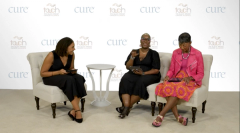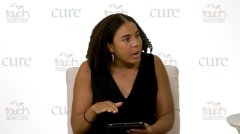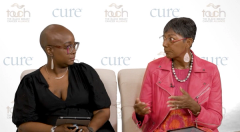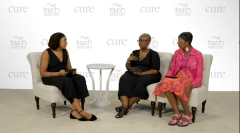
Addressing Low Participation in Clinical Trials Among Black Patients With Breast Cancer
In this on-demand webinar series, CURE partnered with TOUCH, The Black Breast Cancer Alliance to discuss low clinical trial participation in Black patients with breast cancer, and factors that may be contributing.
Episodes in this series

In part two of CURE’s “Breaking Barriers: Addressing Women of Color Underrepresentation in Clinical Trials” webinar, Ricki Fairley, CEO of TOUCH, The Black Breast Cancer Alliance; Hayley Brown, director of partnerships and programs at TOUCH, The Black Breast Cancer Alliance; and Michelle Anderson-Benjamin, CEO and founder of The Fearless Warrior Organization, discussed lower participation rates in clinical trials among Black women, and factors, like lack of education around breast cancer and its treatment as well as mistrust of medical providers, that may contribute to this low rate.
“It's so important, because we need to understand the science for Black women, we need to understand all the nuances that are different for Black women. And right now, we're not in the in the data,” Fairley said.
Summary:
00:22 – Clinical trials and participation among Black women with breast cancer.
- Ricki Fairley noted the fact that Black women face barriers to participating in clinical trials, with only a 3% participation rate, despite higher mortality and recurrence rates found among this patient population.
01:33 – Educating patients about clinical trials.
- As a result, Ricki Fairley highlighted the need for education from trusted voices, who can explain aspects of care in simple, understandable terms.
02:54 – Cancer treatment options and clinical trials.
- Michelle Anderson-Benjamin discussed her experience with clinical trials, and how she leaned on her fellow “breasties” in the community to learn about their experiences, as well as how she educated herself on her disease.
03:58 – Cancer treatment and precision medicine among women of color.
- Michelle Anderson-Benjamin mentioned, in particular, the lack of education around precision medicine, and as a result limited access to it amongst marginalized communities.
05:13 – Medical mistrust and informed consent.
- Hayley Brown added that the lack of education around breast cancer and its treatment can add to medical mistrust, adding to limited clinical trial participation among Black patients.
For more news on cancer updates, research and education, don’t forget to








